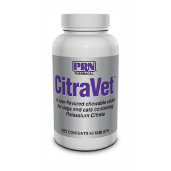Cats are prone to diseases of the urinary tract. One of the more common types goes by the name feline idiopathic cystitis (FIC). FIC may also be called Idiopathic Feline Lower Urinary Tract Disease (IFLUTD), Feline Urologic Syndrome (FUS), or Interstitial Cystitis.
"Veterinarians do not know why some cats develop FIC and others do not."
The Symptoms of FIC
Cats with lower urinary tract disease, including FIC, typically have the following symptoms:
- Straining to urinate
- Urinating frequently but only producing a small amount at any one time
- Discolored urine
- Painful urination
- Urinating outside of the litter box
If a male cat has such severe symptoms that he basically cannot urinate at all, take him to the veterinarian immediately. This is a true emergency, and he will need treatment over and above what is described in this article.
Diagnosing FIC
The first thing a veterinarian will do when presented with a cat with the aforementioned symptoms is to perform a physical exam and analyze a sample of fresh urine. This sample is best taken directly from the cat's bladder using a needle and syringe. Depending on the results of this initial test, the veterinarian may also recommend a urine culture to check for bacterial infections, blood work, x-rays or an ultrasound of the bladder, and other diagnostic tests.
FIC is a diagnosis of exclusion, meaning that there is no specific test for it. But, when a cat has the typical symptoms associated with lower urinary tract disease and other potential causes (e.g., bladder stones, tumors, infections) have been ruled out, FIC will be the diagnosis.
What Causes FIC?
Veterinarians do not know why some cats develop FIC and others do not. Many cats with FIC have an imbalance of neurohormones in their brains making them especially sensitive to stress, which seems to play a big role in the development of FIC. Other possibilities include an unrecognized viral infection or abnormalities on the inner surface of the bladder wall that allow it to become irritated and inflamed.
Treating FIC and Preventing Flare-ups

Because we don't know exactly what causes FIC, there is no one treatment protocol that works for every cat. Because episodes of FIC have a tendency to improve over the course of several days to a week no matter what treatment is initiated and then flare up again in the future, determining the effectiveness of one type of therapy over another is difficult. The primary goals of FIC treatment are to keep cats comfortable during an episode and to reduce the severity and frequency of future flare-ups. Options for treatment and prevention include:
Comfort care – pain relievers (e.g., buprenorphine) and anti-inflammatories (e.g., prednisolone) may be prescribed to keep cats comfortable while an episode of FIC is ongoing.
Increase water consumption – dilute urine is less irritating to the bladder wall than concentrated urine. Feeding canned food is a simple way to increase a cat's water consumption. Also keep fresh clean, water available at all times. Some cats prefer a running source of water, which can be provided using a kitty water fountain. Fluids may also be given underneath the skin (subcutaneously) if a cat's condition warrants it.
Stress relief and environmental enrichment – Cats can become bored and stressed by lack of activity and stimulation. Play with your cat and rotate toys in and out of circulation. Scratching posts should always be available, and if you can safely let your cat have some supervised contact with the outdoors on a leash, in a cat-proof enclosure, or even through a screened window, do so. Cats do best with a predictable schedule so try to maintain a routine whenever possible.

If you have more than one cat and they do not get along, keep them separated or provide them with multiple feeding stations and lots of hiding places and covered escape routes.
In severe cases, anti-anxiety medications (e.g., amitriptyline, clomipramine, or fluoxetine) can be prescribed.
Keep litter boxes clean – Dirty litter boxes are stressful for cats. Always have at least one more box than the number of cats in the home, scoop them daily, and wash and refill them monthly.
Switching diets – Foods that create a healthy urinary pH and promote bladder health may be helpful in some cases, particularly if urinary crystals have been a problem. Supplements like CitraVet (Potassium Citrate) can be prescribed by vets to reduce urinary pH to help prevent bladder stones. Other nutritional supplements – Glucosamine and Duralactin, and others are also worth a try.
The above is provided for information purposes only and should not be used for the diagnosis or treatment of any condition.
This information does not cover all possible variables, conditions, reactions, or risks relating to any topic, medication, or product and should not
be considered complete. Certain products or medications may have risks and you should always consult your local veterinarian concerning the treatment of
your pet. Any trademarks are the property of their respective owners.